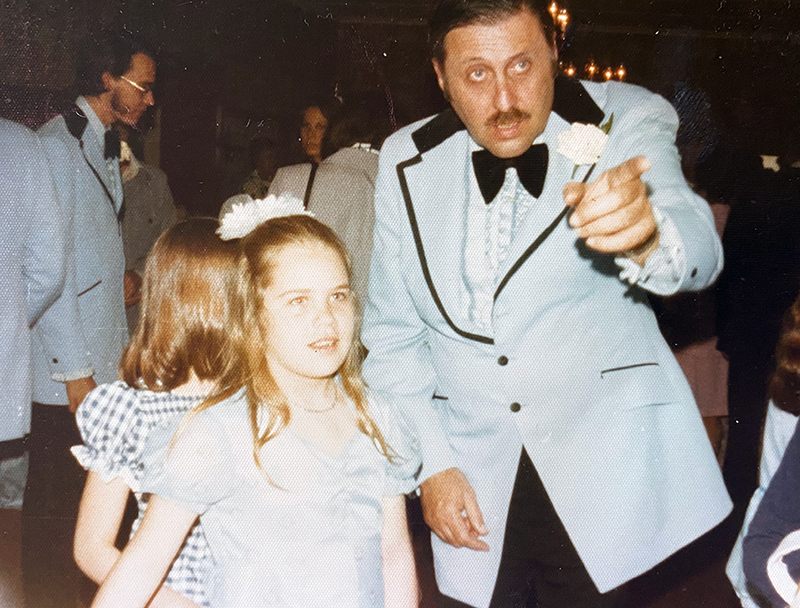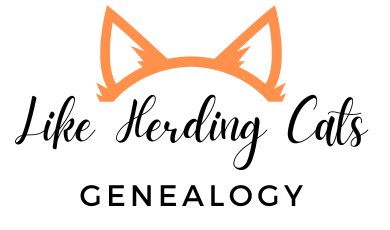Three things to never say to an NPE
This is my NPE story of discovering in 2015 that my Dad was not my biological Dad. If you’d like to follow along, I encourage you to start at my first post of the series HERE.

When people hear my story, they all react differently. There is sympathy, most definitely. There is shock, especially if they knew me as a kid. There is a curiosity to hear all the sordid details, which is completely normal. Overall, I think it’s human nature to want to say something comforting or uplifting when you see someone struggling. People are well-meaning and kind, but they don’t realize that certain platitudes can be triggering and upsetting to us depending on where we are on this journey. I don’t expect people to know what to say. I give most everyone a pass, quite honestly, because I know people are just trying to help. But I know many NPEs*. I am a part of one of the original online support groups for it, in fact. These three things people say to us always come up as causing us more pain rather than comfort. Here are three things you should hold yourself back from saying to someone who is an NPE.
#3 You Are Still You
We know what you are getting at here. We are still married to the same person, we still have the same number of children, the same values, the same job, and the same life that we had before we knew any of this. But we are trying to explain to you that a discovery like this changes you on a level deep within the core of who we are. We are not the same person anymore, and we are mourning for that person we were. This discovery profoundly affects how you live your life and how you see things. Some NPEs who did not have a good relationship with the fathers who raised them say they actually feel suddenly like a piece of them that was missing is finally in place. Things suddenly make sense to who they are and why they felt different growing up. They are changed for the better with this discovery. There are two sides to the coin.
#2 Nothing Has Changed
Yes, it has. It really has. Maybe not for you. But for us, everything has changed. How we identify, our medical history, ethnicities, lineage, surnames, and now there are strangers we are now linked to forever but may not ever know. I look in the mirror and see my face differently. I was always told I had my father’s blue eyes. I was the only one in my family who had blue eyes and I felt special for it because it was something just Dad and I shared. But after my discovery, I realized it wasn’t anything that Dad and I shared at all. But it was, ironically, something my biological father and I shared as well. I didn’t know how to feel about that. Finally looking like someone was new to me. Not looking like my Dad was new to me. It is confusing. I have three new siblings who don’t want me. Yet they are still my siblings and they are out there. That is a big change. On the flip side…change doesn’t have to mean just the negative things. If we have a positive reaction from new family members, then we have a whole new group of people to bring into our current families. That can be wonderful for some people. But it is still a change.
And the number one thing NOT to say to an NPE…
#1 Your Dad is Still Your Dad.
This is the number one thing you should not say. And for the record…this is the number one thing in NPE support groups that we talk about people saying to us and how terrible it is when you say it.
We know that you think it will help us see that the word ‘Dad’ means the man who loved and raised us and that he is still our Dad. But we aren’t hearing it that way at all. You need to understand that most of us are traumatized by this. This doesn’t have anything to do with how much we love our Dad or how grateful we are that he raised us. This is about loss. This is about identity. This is about grief. Telling us our Dad is still our Dad makes us feel like you are dismissing everything we are feeling and that it’s your place to remind us that we are actually lucky that we had a Dad who loved us. As much as you care about us and want to help, you can not understand what it feels like to be lied to for 50 years of your life and be left trying to figure out who you are now that the dust has settled. It may not make sense to you, but when you say this to us, it sounds like you are shaming us. We hear, “Oh, stop making a big deal about this. You had a great Dad. Your Dad is still your Dad. ” When my Dad died, I grieved for him terribly. When I discovered he wasn’t my biological father, it felt like he had died all over again. I grieved all over again. It is a confusing mess to go through in a way that’s difficult to explain.
People say these things because it makes them feel more comfortable in an uncomfortable situation. They feel compelled to say something—anything. And, yes, we know that most of the time, this is coming from a place of love—we really do. But telling us how we should feel only makes us feel worse.
What You Should Say
The best thing to say is to tell us you are here to listen to us. Tell us you can’t imagine what we must be going through. Just let us know that you are there for us. I promise that is enough for now.
*NPE is an acronym for “Not Parent Expected.” It has also morphed into a “Non-paternal event.”
This is my NPE story of discovering in 2015 that my Dad was not my biological Dad. If you’d like to follow along, I encourage you to start at my first post of the series HERE.

THank you for this! This is very helpful to all! I think I said something similar to you as the last one. So sorry. Thanks for helping me understand more. Love these posts! 🙂
My siblings and I accepted and welcomed my half sister and her children when they found us. After reading about the hurt of not being accepted by your “new” siblings I am glad that we did.
My youngest sister found that she was NPE about 5 yrs ago. She was very upset with our mother (rightfully in my opinion) that her biological father had died about 3 yrs previously so she never had the opportunity to meet him etc. but our mother was in the process of dying so forgiveness was timely. My biological father had died many years before and mum had divorced him, remarried and divorced and remarried for the last time so there was plenty of opportunity for my sis to meet her father without our (horrible) father even knowing. I have no doubt my eldest sister and I were our fathers daughters (we look very like him and his mother) but I have many doubts about our younger brother but I don’t want to know because my brother is somewhat fragile and will do better without that knowledge. Anyway, the main point is that while my lil sis was upset for a while, she did meet another two half sisters (but not the half brother) and I met the women too. I remember feeling very jealous and had the ‘That’s MY sister, not yours!’ feelings. She found it difficult to maintain the relationship because one sister was a bit nasty and she has no long term feelings for them but she does lightly keep in touch with the other sister. Our various parents are deceased now and we really only have each other so our relationship has never changed. I love my sister very much.